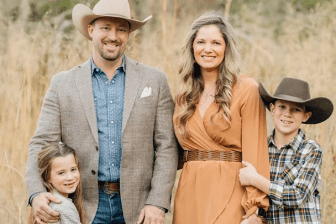NEW YORK – For the first time, elected officials won’t speak at Tuesday’s ceremony at ground zero commemorating the Sept. 11 attacks – an occasion that has allowed them a solemn turn in the spotlight. The change was made in the name of sidelining politics, but some have rapped it as a political move in itself.

It’s a sign of the entrenched sensitivity of the politics of Sept. 11, even after a decade of commemorating the attacks that killed nearly 3,000 people at the World Trade Center, the Pentagon and a Pennsylvania field. From the first anniversary in 2002, the date has been filled with questions about how – or even whether – to try to separate the Sept. 11 that is about personal loss from the 9-11 that reverberates through public life.
Live now: Remembering 9/11:
The answers are complicated for Debra Burlingame, whose brother Charles was the pilot of the hijacked plane that crashed into the Pentagon. She feels politicians’ involvement can lend gravity to the remembrances, but she empathizes with the reasons for silencing officeholders at the New York ceremony this year.
“It is the one day, out of 365 days a year, where, when we invoke the term ‘9-11,’ we mean the people who died and the events that happened,” rather than the political and cultural layers the phrase has accumulated, said Burlingame, who’s on the board of the organization that announced the change in plans this year.
- ‘Shock and disbelief’ after Manitoba school trustee’s Indigenous comments
- Canadian man dies during Texas Ironman event. His widow wants answers as to why
- Several baby products have been recalled by Health Canada. Here’s the list
- ‘Sciatica was gone’: hospital performs robot-assisted spinal surgery in Canadian first
“So I think the idea that it’s even controversial that politicians wouldn’t be speaking is really rather remarkable.”
Remarkable, perhaps, but a glimpse through the political prism that splits so much surrounding Sept. 11 into different lights.
Officeholders from the mayor to presidents have been heard at the New York ceremony, reading texts ranging from parts of the Declaration of Independence and the Gettysburg Address to poems by John Donne and Langston Hughes.
But in July, the National Sept. 11 Memorial and Museum – led by Mayor Michael Bloomberg as its board chairman – announced that this year’s version would include only relatives reading victims’ names. Politicians still may attend.
The point, memorial President Joe Daniels said, was “honouring the victims and their families in a way free of politics” in an election year.
“You always want to change,” Bloomberg said in a radio interview in July, “… and I think it’ll be very moving.”
Some victims’ relatives and commentators praised the decision. “It is time” to extricate Sept. 11 from politics, the Boston Globe wrote in an editorial.
But others said keeping politicians off the rostrum smacked of … politics.
The move came amid friction between the memorial foundation and the governors of New York and New Jersey over progress on the memorial museum. New York Gov. Andrew Cuomo, a Democrat, and New Jersey Gov. Chris Christie, a Republican, have signalled their displeasure by calling on federal officials to give the memorial a financial and technical hand.
Some victims’ relatives see the no-politicians anniversary ceremony as retaliation. Both states’ governors have traditionally been invited to participate.
“Banning the governors of New York and New Jersey from speaking is the ultimate political decision,” said one relatives’ group, led by retired Deputy Fire Chief Jim Riches. His firefighter son and namesake was killed responding to the burning World Trade Center.
To Riches, political leaders’ presence shows a nation’s respect and recognizes their role in passing laws that aided victims’ families and people sickened by working at ground zero.
With politicians excluded, “the 9-11 families are having to turn their backs on the people who helped us so much,” he said.
Spokesmen for Christie and Cuomo said the governors were fine with the memorial organizers’ decision.
For former New York Gov. George Pataki, the change ends a 10-year experience that was deeply personal even as it reflected his political role. He was governor at the time of the attacks.
“As the names are read out, I just listen and have great memories of people who I knew very well who were on that list of names. It was very emotional,” Pataki reflected by phone last week. Among his friends who were killed was Neil Levin, the executive director of the Port Authority of New York and New Jersey.
But Pataki supports the decision not to have government figures speak.
“It’s time to take the next step, which is simply to continue to pay tribute,” said Pataki, who expects he’ll continue to attend.
Of course, it’s difficult to remember 9-11 without remembering its impact on the nation’s political narrative. As both an event and a symbol, it’s “seared into the American social and political psyche, with profound consequences,” says Baruch College political science professor Douglas Muzzio.
Also Monday, the White House said President Barack Obama and his advisers discussed specific measures the administration was taking to prevent 9-11-related attacks. They also discussed steps that were being taken to protect Americans abroad and U.S. forces serving in combat zones.
The White House did not detail any of the measures being taken, noting only that Obama instructed government agencies to do everything possible to protect the American people both at home and abroad.


Comments